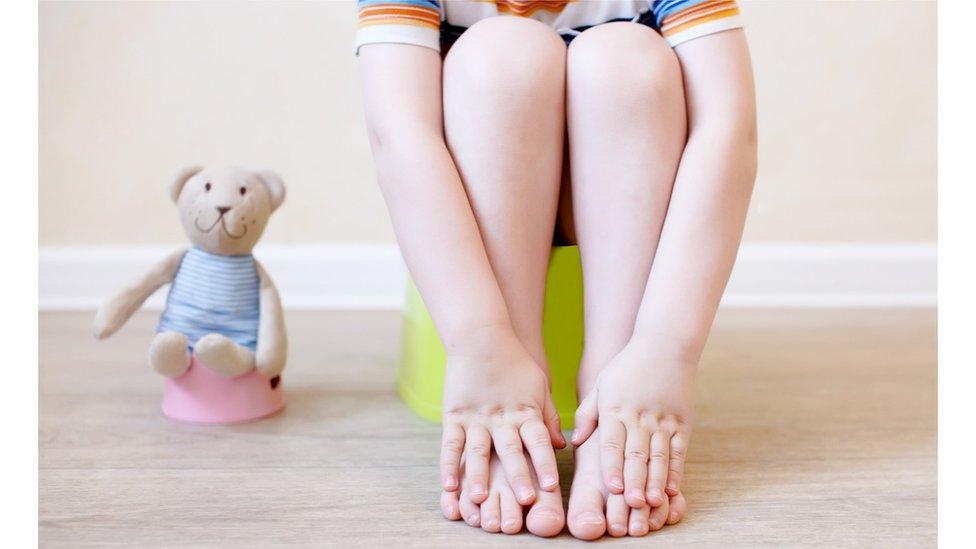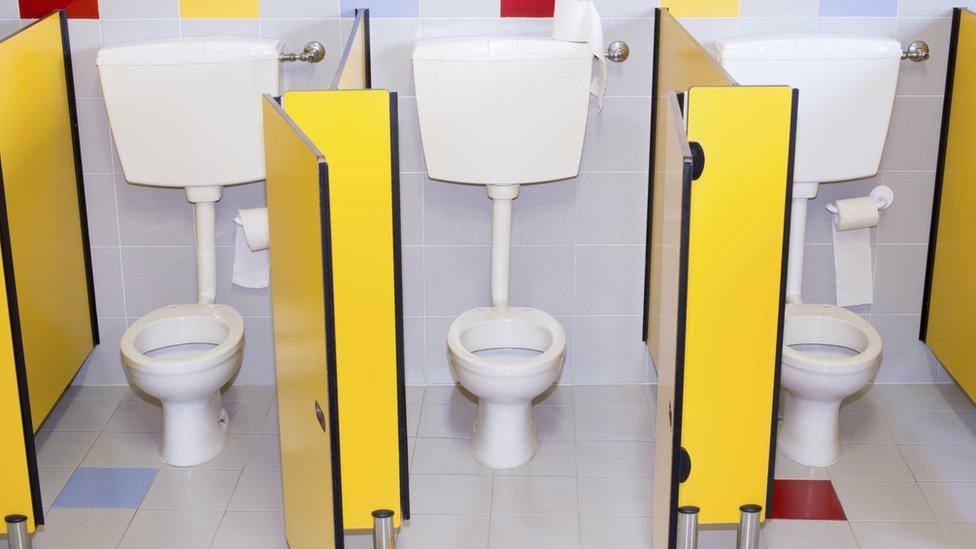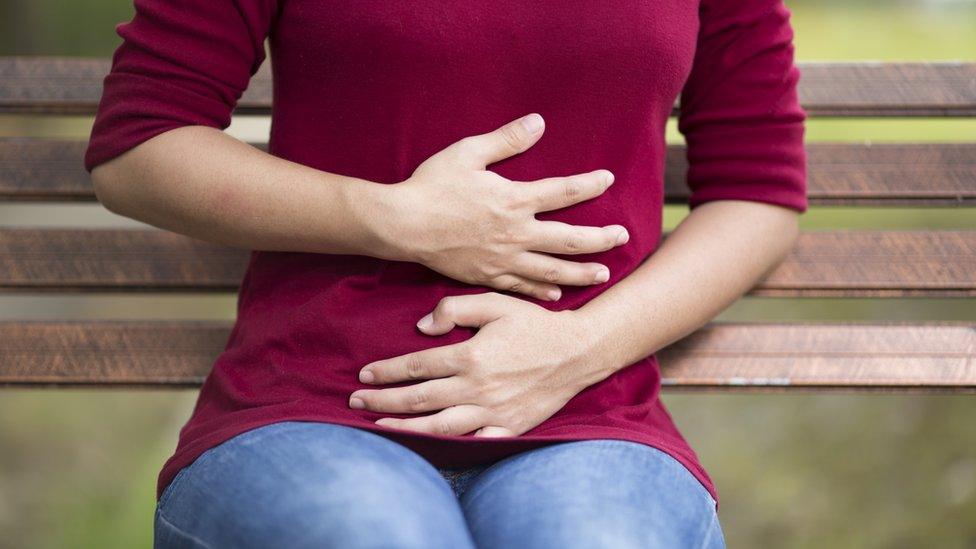Overcoming the emotional trauma of constipation
- Published

Caroline's greatest fear was that her son Jack would have no control over his bowels when he started school.
When he was about 18 months old, he was diagnosed with toddler diarrhoea, put on a low-fibre diet and his mum Caroline was told he would grow out of the problem.
But the diarrhoea continued and so did the accidents.
"He would go to nursery with a bag of spare clothes because he had two or three accidents a day," Caroline says.
"As he got older he started to realise that wasn't normal."
With no sign of any improvement after almost two years, Caroline sought a second opinion and Jack was diagnosed with chronic constipation. The diarrhoea had just been a symptom of a more serious underlying problem.
Finally, with advice from children's continence charity ERIC, Jack was put on a course of medication which helped to clear the contents of his bowel and then a dose which would help to keep his system moving in the future.
Within two or three months, his mum says, he was "all clear", just in time for starting primary school in Wiltshire, but they had been dealing with a misdiagnosis for nearly two years.
One particular incident brought it home to Caroline just how awful Jack's problem had become and how traumatic it felt for him.
"He'd locked himself in the toilet with one of his baby brother's nappies and was trying to put it on..."
Constipation in children is not unusual - children's continence charity ERIC says between 5% and 30% of children suffer from it, yet parents complain that the condition often goes unrecognised.
It says GPs are failing to diagnose the problem properly and not referring to a specialist when they should - and sometimes the advice they give is wrong.
Rhia Weston, from ERIC, says children should be encouraged to drink more water, prescribed a laxative to clear them out and then put on a 'maintenance dose'.

Children starting primary school can become constipated because of a new routine
Changing their diets and adding more fibre may work, but it is not going to solve everything.
"More often it's to do with dehydration because the child is not drinking enough at school and is possibly holding on and not going to the toilet at school," she says.
"Or it may be caused by a fever or medication. They can experience one painful poo and then it becomes a vicious cycle of not wanting to go."
Although constipation can be caused by physical problems too, she said it was important to make sure children got a decent amount of exercise and had a toilet routine in place - for example, sitting on the toilet 20 minutes after each meal.
Dr Anton Emmanuel, consultant neuro-gastroenterologist at University College London, agrees that traditionally the emphasis has been on increasing fibre intake.
"But that doesn't work for everyone. If people have tried that and it doesn't work, they need to try something else," he says.
One new therapy - called biofeedback - focuses on re-training the body's functions to work normally, rather than relying on the laxative effect of drugs.
Biofeedback uses special sensors connected to computers to measure bodily functions, even ones we are not aware of, and this information helps patients find out how their bodies are actually working.
By retraining the pelvic floor and sphincter to work the right way, the idea is that normal bowel control can be re-learnt and restored.
Dr Emmanuel explains: "Therapies have failed because the pelvic floor is tightly shut. People avoid loos, they hold on, and so the pelvic floor doesn't relax."

Chronic constipation can cause stomach cramps and pain
He says that, over three or four biofeedback sessions, people can see improvements by doing pelvic floor exercises, among others.
Tammie Cherry, from Kent, has experienced the positive effects of biofeedback after nearly 30 years of suffering with chronic constipation, which often led to painful stomach cramps and terrible episodes of diarrhoea.
She first noticed the problems around the age of 10 but was told she would grow out of it if she ate more fibre in her diet - but that didn't work.
She was eventually referred to St Mark's Hospital in Harrow and treated at the Biofeedback Unit. After two months of a tailored diet while following specific stomach exercises, she had normal bowel movements and some control over her life again.
"I can go shopping now, sit down on a bus and go out of the house without being caught short - and I've got no chronic pain. It's fantastic."
Constipation is the second or third most common reason among potty-trained children for going to see the GP, but Dr Emmanuel says it's important to look more deeply.
"Constipation is just a symptom. It can mean different things in different people. We must understand the mechanism of the individual because it's not the same for everyone."
Caroline describes how they had to help Jack retrain his body how to poo which led to a battle of wills and many, many tears.
Now that he is five years old, in Reception class, and in a good toilet routine, he is a very different boy, his mum explains.
"Physically he is much more content and, because his body is working better, he is happier."
Looking back, Caroline knows that with a correct, early diagnosis and some proper support Jack's early years should have been very different.